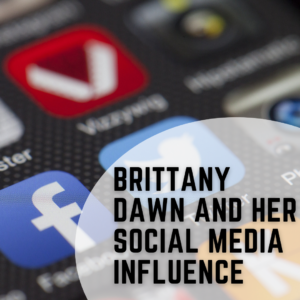 In the overall scheme of things, today’s social media influencer is not much different than the old-fashioned faith healers of the 1920s. In a hundred years or so, society has not come much further save for the use of the internet. As an ethics keynote speaker, ethics consultant and book author, I know that Brittany Dawn, much like Aimee Semple McPherson of old (this is an interesting internet search for you), is peddling magic oils and healing for a few bucks.
In the overall scheme of things, today’s social media influencer is not much different than the old-fashioned faith healers of the 1920s. In a hundred years or so, society has not come much further save for the use of the internet. As an ethics keynote speaker, ethics consultant and book author, I know that Brittany Dawn, much like Aimee Semple McPherson of old (this is an interesting internet search for you), is peddling magic oils and healing for a few bucks.
The ethical problem
The ethical problem with the Brittany Dawn’s of the world is that people who pay good money for personalized programs and prayers soon realize that their “personalized” connections are not tailored to them at all.
Brittany Dawn, as many alleged scammers, do not stop at the first sign of trouble. They continue with their ways until literally shut down. As a group, whether “health evangelicals” or “fitness gurus” they continue. To that point, it has recently surfaced that she is planning in-person health retreats in the hundreds of dollars ($600+) to rope in people to various locations. Whether it gets off the ground, is contingent on whether she is able to fight the legal obstacles that currently confront her.
Brittany Dawn is about to go to trial as the result of fraud and false advertising. The social media influencer is accused of misleading customers who believed her virtual training programs were “personalized.” They weren’t. At present, she could be fined up to $1 million by the Texas AG. These charges go back to February 2022.
Not all-that surprising, is that prior to running her fitness business this self-professed media influencer wrote Christian web content. She then got the idea, based on her internet following to create a three-month program of training sessions. The weekly sessions ranged from about $90 to $300.
She offered hope, personal attention, prayer and friendship. In turn, she asked for basic health information (it’s amazing how the vulnerable give up their sense of power) so she could offer a one-to-three-month plan.
Oh, Dawn, you saved my life!
Once the programs got rolling, complainants quickly realized the encouragement was generic and unhelpful, as though no one was there. According to the Texas AG, it: “alleged that Dawn denied enrolling clients with eating disorders,” but she seemed to have done so, and allegedly, the support was generic and not even connected to the complaints and the personalized pleas for help. In fact, it is alleged that in her “work” she basically reinforced bad eating behaviors.
The once compassionate and loving Christian content creator has now turned to attacking law enforcement with angry social media rants. She will dig-in and fight claims. As an ethics keynote speaker, ethics consultant and book author, I know that this is precisely the wrong reaction she could elicit.
I also believe that Brittany Dawn is completely over-estimating the power of social media legions. In the span of three-years, and given the widespread accessibility of news stories on the internet, her social media presence has taken a darker turn. The vicious protest she is mounting can quickly go viral against her in return.
Brittany Dawn’s presumed empire relied on drafting a continuous supply of clients to support her mini-empire. While not exactly a Ponzi-scheme, it did reflect some elements of a pay-to-play. If the purported rumors of her in-person training classes come to pass, she may have even larger ethical problems on her hands where her past and her credentials could be challenged.
There is little new here except new people willing to get hope by someone who claims her teachings emanate from higher powers. I might better recommend honesty and contrition.
LEAVE YOUR COMMENTS!


